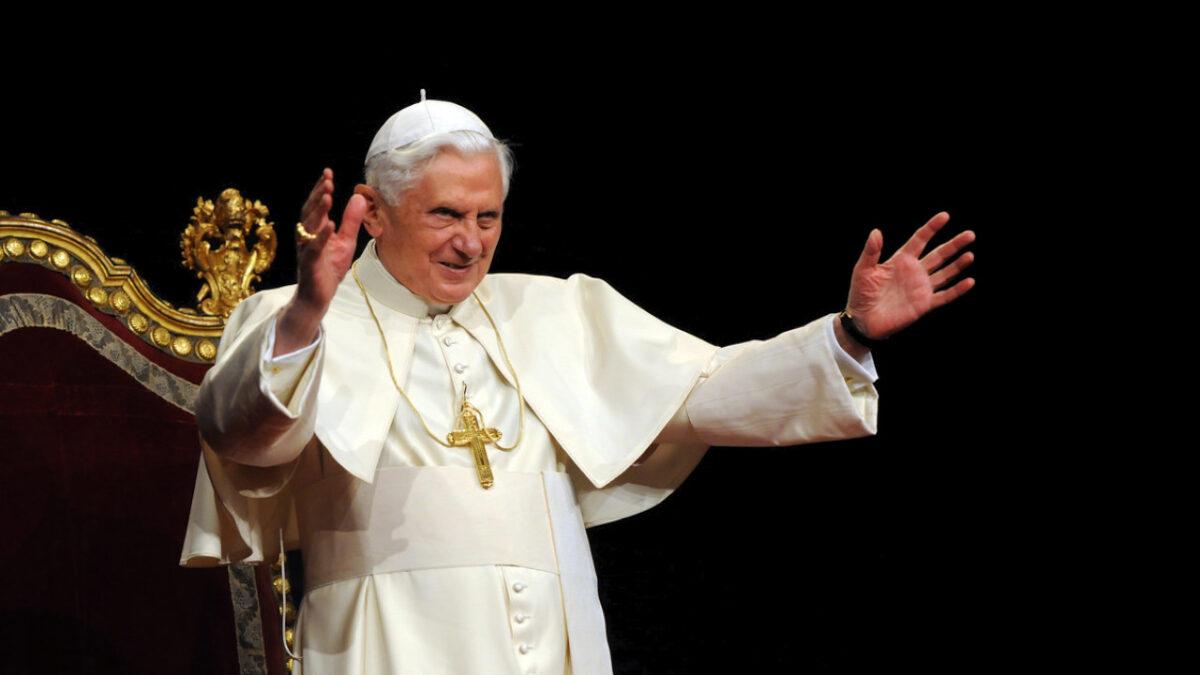For all Christians—Catholic and Protestants, the writings of Father John Ratzinger later to become Pope Benedict the XVI, and his prescient transcendent understanding of human nature and his love of man and God, have had an impact on modern religious, theological, and political and economic, thinking that will only grow and become more understood in the years to come. His death last weekend gives us pause to reflect on his wisdom, his love, and his early understanding of the threat of “modernity, humanism, and materialism”. Like his predecessor Pope John Paul II, he was a great crusader for liberty. One of the Great framers of Vatican II from 1962-1965, he was early on described as a “liberal” because he was a force in changing styles within the liturgy, allowing for Mass to be said in native languages as well as the traditional Latin Mass, and he fought against the “conservative” old order. He was a protégé of Pope John II and was at his side when he and Ronald Reagan engineered the fall of the iron curtain—without firing a shot or killing a soldier or a civilian—a testament to the power of faith and prayer.
Cardinal Ratzinger in 1977 compared the modern era to the times of the French Revolution. While the post Vatican II Church was growing economically and in numbers, he speculated that its’ diminishing spiritual side and lack of an allegiance to The Gospel was setting it up for a future collapse.
His willingness to confront the cascading ramifications of clerical sexual abuse began in 1977 when he first became a Cardinal, convincing his predecessor to withdraw Cannon authority on abuse and aberrant sexual matters within the Dioceses, Parishes, and the Seminaries seeding authority within the Vatican’s Congregation of the faithful, was a crucial and courageous move that was unpopular making him many enemies within the Ecclesiastical communities—both Catholic and Protestant. Consistent with his views about “liberty and accountability” he argued for transparency at all levels when dealing with the evils of sexual abuse. He felt that a disordered view of the clergy for themselves—placing themselves above the people and not as servants of God and the people, caused a widespread clericalism (“institutionalism”) that could be found in other institutions in modern society.
He spoke twice—once while at the White House as a visiting Pope, of his reverence for our Founding Documents and quoted from our Declaration of Independence. On several other occasions he warned of secular-humanism noting its’ relationship to the ideals of a “godless French Revolution and a Voltairean atheism”. Growing up and while in seminary during WWII he was a fierce anti-communalist (communist and socialist) and understood the fallacies of “totalitarianism”. His life while living as a youth under Hitler’s Nazism, was completely investigated by the Wiesenthal Institute. Unlike other Catholics—some point wrongly to Pope Pius, they found that the Ratzinger family were as “non-compliant with the Third Reich” as was possible during WWII.
I never met Fr., Cardinal Ratzinger, and I have never met a Pope. My best friend in life Father Lance Krzywicki studied Cannon law under then Fr. Ratzinger and he communicated with his mentor on close to a monthly basis for 40 years. I have read several of his letters. What sticks out for me is this: That on a personal level he “suffered fools” poorly but always with impunity. He was always humble. He was disciplined. He was most of all courageous. Throughout his lifetime he made many enemies within and without The Church. He took unpopular stands when it came to doctrine—but not necessarily dogma. He prayed—a lot.
The last paragraph describes for me not only the characteristics of a wise cleric, but of anyone who is put in a position of leadership. It is time for not only those in the Catholic and Protestant clergy to stand up for Biblical principles, but also people in leadership positions—business, and education. Is it too much to ask our politicians to be brave and principled—or our military leaders and our mothers and fathers as heads of our families?
Emeritus Pope Benedict spoke of a New Day for The Church. I believe a call for a New Great Awakening in our country is the same thing. Rest in peace Benedict. Thank you for your service.


